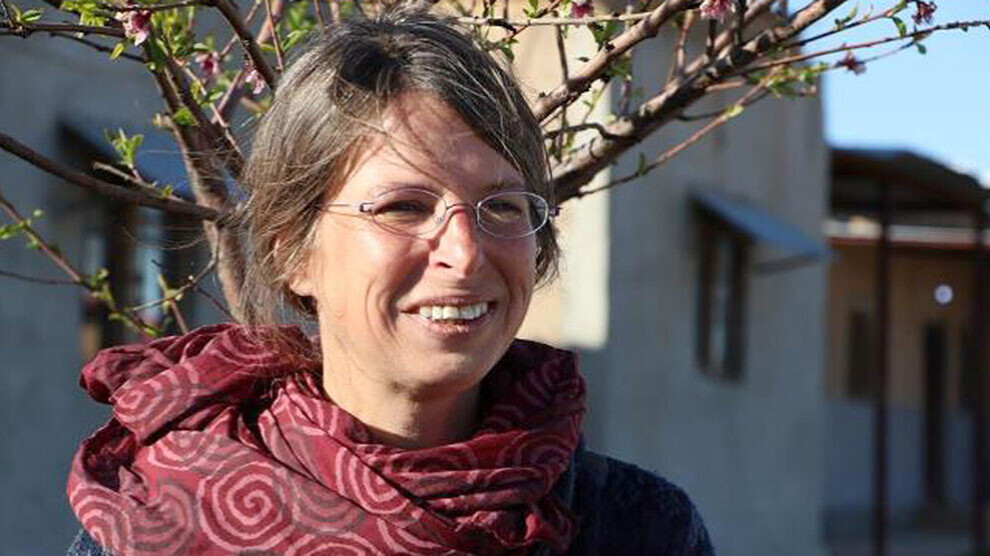"Key to women's liberation lies in the revolution of Rojava"
Şervîn Nûdem from the Jineolojî Academy in Northeast Syria talks about the importance of the Rojava revolution for women's liberation.
Şervîn Nûdem from the Jineolojî Academy in Northeast Syria talks about the importance of the Rojava revolution for women's liberation.

After the revolution in northern and eastern Syria, people from all over the world came to the region to defend the revolution, participate in it in many ways, and learn from it. While some of the internationalists have returned to their countries to share their experiences and knowledge, many of them are still in Rojava. One of these internationalists is Şervin Nûdem from Germany. She has been working at the Academy for Jineolojî in Rojava for five years.
"Small steps and big dreams"
Şervîn Nûdem tells the ANHA news agency that the revolution began with small steps and big dreams: "In Rojava, profound changes occurred in a short time, both in the women's lives and in society as a whole. In terms of defense, democracy, and women's liberation, there were very positive achievements, as in many other areas. In fact, this revolution has become known primarily as the women's revolution. This revolutionary process is still ongoing."
"The revolution of Rojava is on a firm footing"
Şervîn continues, "In the early 20th century, revolutions similar to Rojava's occurred. But these revolutions, in which the working people and women were defended and fascism was crushed, did not last. The revolution of Rojava is based on the 40-year experience of Abdullah Öcalan and the Kurdish freedom movement. That is why its foundation is firm. From the first day of the revolution until today, women are expressing themselves in all areas. Unlike the state system, peoples live together freely in this system."
"Spreading the message of the women of Rojava worldwide"
The internationalist points out that March 8 activities are also affected by the pandemic situation. She elaborates, "In many places around the world, women can only come together virtually. During the unsuccessful fight against the pandemic, women were pushed back into the domestic space. In Rojava, women celebrate March 8 with many events. There are festivals, panel discussions, demonstrations and colorful celebrations. I hope that the pandemic will end worldwide as soon as possible and that such activities will be possible again everywhere. We will spread the message of Rojava women worldwide."
"In Rojava, every day is March 8"
Regarding March 8, Şervîn Nûdem says, "We cannot limit the struggle here to one day. We can consider this day as an expression of the work of the whole year. As far as women's freedom is concerned, Rojava is in the forefront worldwide. This is thanks to Abdullah Öcalan, who delivered his women's liberation ideology to women on March 8, 1998, 23 years ago. In fact, the Rojava revolution was built on this foundation."
"The Rojava revolution is growing"
"The Rojava revolution is growing at a time when people's health is threatened, nature is being destroyed, and violence against women is increasing. Communes, councils, committees, and self-governance are paving the way for women around the world. Women need to strengthen their struggle worldwide."
"Defending the revolution of Rojava means defending hope"
Şervîn Nûdem points to the importance of campaigns like Women Defend Rojava, saying, "Defending the revolution of Rojava means defending hope. There have been many kinds of revolutions in the history of the world. The revolution of Rojava is based on ecology, democracy, communal life and women's liberation. These points are being discussed all over the world. Councils are now being formed from Latin America to India. Societies no longer have expectations of governments. Against the attacks, it is important to provide unity. The Rojava revolution has had an impact on women's struggles in Afghanistan, Poland and Bolivia. Women have united in struggle. Together we are strong. We must feel the suffering of all women in the world as our own."